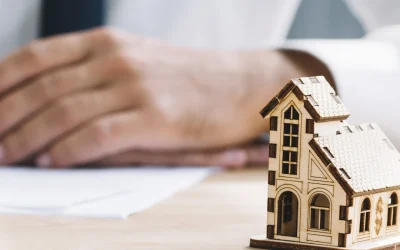How would you protect your first house investment? The effort of financial budgeting and organizing does not end once you receive the keys to your new house. Despite the relief of finally being there after all the labor of finding and purchasing the property is there.
A new set of financial scheduling and budgeting responsibilities arises if you purchase a property. Create a budget that accounts for all of your regular home expenses. It’s a good idea to set apart enough extra cash for maintenance and improvements. Think about life and disability protection in addition to the homeowner’s policy. Nonetheless, don’t forget to save for other long-term objectives like a pension.
Being a Real Estate expert lets us explain the following steps for you so you can get better insights. Taj Residencia focuses on making the most out of assets and love to advise its client to do the same. There are various factors that add up to the effort of protecting your first house investment, such as:
Check Your Budgeting strategy
The benefits of lying back and creating a budgeting strategy are numerous. All expenses associated with owning a home should be fully covered by your budgeting strategy. That covers your down payment as well as any changes in out-of-pocket costs brought on by rising energy prices. Condo or homeowner’s association dues, and repair or upkeep charges might add to this. If you recently switched from renting to ownership, the latter two should be taken into account. If you’ve never owned a house before, having to spend extra money to fix a clogged drain or fix a broken pipe might be a loud awakening call.
You can anticipate spending between 1% and 4% of the sale price on maintenance, which includes gardening, cleaning, and small repairs. But that sum doesn’t account for bigger costs a person can incur.
Budgeting plans for Improvements
If you want to renovate your kitchen or update the bathrooms, you’ll also need to make room in your budget for upgrades.
You should put paying off any debt you already have before avoiding taking on any further debt. You may be able to put more money toward your home savings fund and have more breathing room in your budget if you stop making payments on credit cards, school loans, or vehicle loans.
Maintain Your Insurance
Homeowner’s insurance is a requirement for first-time buyers, but you might also require other insurance, starting with life insurance. Like a self-fulfilling strategy, life insurance works. If you have a family, life insurance can also assist in providing cash flow to support monthly bills or pay for your children’s college tuition.
When purchasing or renewing a life insurance policy, make sure you have at least sufficient coverage to settle your property and provide for your family’s daily needs for the first few years after your lack of support. Selecting a temporary or life insurance policy coverage may be one of your concerns.
Term Life
The least expensive choice is term life because you’re only protected for a set period of time. If you’re a first-time buyer and require coverage only while you have a mortgage or a budgeting plan. This kind of policy may make sense.
Permanent Life
Whole or complete life insurance is permanent and can provide cash value accumulation, but it can be significantly more expensive. We advise speaking with a certified insurance broker or agent about your alternatives if you’re not sure which to buy.
Budgeting as Insurances
Debilitation insurance is an additional factor. Your capacity to make your mortgage payments could be impacted if an injury prevents you from working temporarily or a serious illness necessitates a lengthy leave of absence. In those situations, short- and long-term disability insurance can aid in your financial security.
If you have an older house, you might also want to look into the insurance coverage or home warranties to aid with repair costs. We advise determining whether you can save money by combining your homeowner’s insurance with other insurance plans.
Examine your retirement strategy and budgeting strategy
It’s important to keep in mind your other financial objectives if your budgeting plan changes and grows after purchasing a property. That also applies to retirement planning. Keep contributing to your retirement accounts after you buy your first house, and set aside some cash for any unforeseen household needs, such as fixing a broken dishwasher or repairing a window.
What Impact Will Buying a House Have on My Budgeting stance?
The majority of people utilize a mortgage loan to purchase a home. These payments come monthly along with homeowners’ insurance. Other costs and additional costs are also there if you want to purchase a condo or join a homeowner’s association. Your new homeowner’s budgeting plans should account for all of these expenses.
How Much Should I Put Away while budgeting If I Just Bought a House?
Many financial professionals advise first-time homebuyers to aim to put at least six to twelve months’ worth of expenses in liquid savings accounts for emergency situations.
Wrapping Up
Although purchasing a property entails more financial obligations. With the correct preparation and perfect budgeting plan, you can avoid getting overburdened. It’s better to start your financial planning and budgeting before you even purchase a home, but even if you’re running behind schedule, it’s still crucial to prioritize planning. Making a budgeting strategy is a good idea, but sometimes the first step is to keep track of your spending so you can figure out how much money you need to set aside. After purchasing a property, you should closely examine your spending if you’re having trouble conserving money.
Contact Details
- UAN +92 311 1154154
- +92 34 566 778 85
- info@tajresidencia.com
- Adjacent to CDA Sector I-14 &, I-15, Rawalpindi, Punjab



